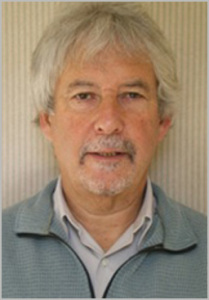“A New STEAM Age: Towards One Culture for Learning”
by Professor Dr. Martin Braund,
Adjunct Professor at Cape Peninsula University of Technology in Cape Town, South Africa and Honorary Fellow in the Department of Education at the University of York, United Kingdom
Abstract
In many cultures learning has been organised around subject disciplines broadly conceived as the Arts, Humanities and Sciences. Subject disciplines of the curriculum have evolved structures and characteristics creating boundaries between them that are counter to the experiences of many adolescents, who rarely meet such borders in their daily lives. Disciplinary borders favour a utilitarian view of knowledge and creativity, often under-valuing some disciplines, including the creative and performing arts, not directly associated with primary means of economic production. The borders between self-reinforcing disciplinary structures result in inadequate attention paid to the potential of working across, between and beyond disciplines. In this keynote I examine how this schism between the ‘Arts’ and ‘Sciences’ has come about and the potential harm it continues to do. An example from the history of science, the case of Darwin’s changing relationship with the two cultures, is used to promote the benefits of more creative approaches to teaching science in a new project, ‘Darwin Inspired Learning’. The benefits to learning science using one of the Arts, drama, are shown. The argument is made for ‘STEAM’, showing how education in the 21st Century is moving away from a restricted notion of STEM (Science, Technology, Engineering and Mathematics) to one that encompasses the Arts (Science, Technology, Engineering, ARTS and Mathematics). STEAM promotes economic development, encouraging people to work creatively to generate and communicate ground breaking new ideas.
Biography
Martin Braund is Adjunct Professor at Cape Peninsula University of Technology in Cape Town, South Africa and Honorary Fellow in the Department of Education at the University of York. After graduating in Zoology and Geology from Exeter University he taught science in secondary schools in Cardiff, York and Boroughbridge for 18 years. In 1989-1991 he completed a Masters in Science Education while working as a Research Fellow for the Assessment of Performance Unit in Science at the University of Leeds. He holds a PhD from the University of York focused on research in transition from primary to secondary school. Much of his work is connected with innovative approaches to teaching science and biology. His wife is an actress and he has a great interest in the history and philosophy of the theatre. Martin has published over seventy journal articles and his books and chapters in books are internationally known in the fields of transition, informal learning outside the classroom (with Michael Reiss), argumentation, teacher education and drama in science. His most recent book, Performing Science (Bloomsbury, 2012), was shortlisted for education resource of the year. Martin is a member of several international research organisations and editorial boards of leading journals and is editor of Science Teacher Education. He has worked as consultant, adviser and keynote speaker in over 20 countries of Europe, Australasia and Africa.

